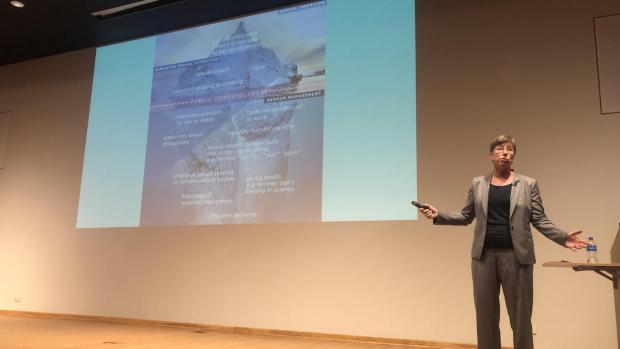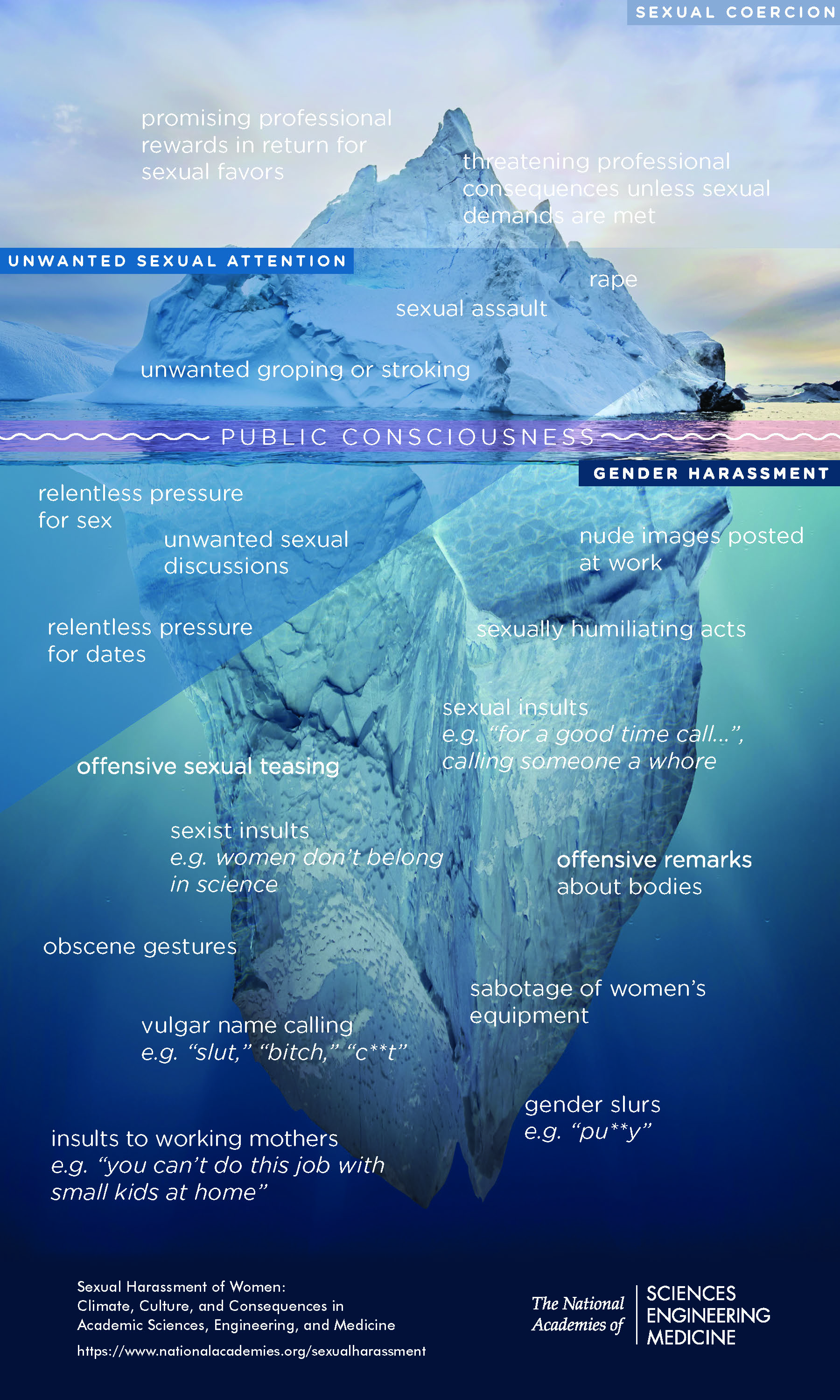Guest presenter Elizabeth L. Hillman discusses STEM and sexual harassment

Elizabeth L. Hillman discusses the findings of the report she co-authored, Sexual Harassment of Women: Climate, Culture, and Consequences in Academic Sciences, Engineering, and Medicine
In late September, Elizabeth Hillman — the president of Mills College and a co-author of the 2018 National Academies of Sciences, Engineering and Medicine study on sexual harassment in the STEM arena — came to NYU Tandon to discuss her findings and map a path forward.
Professors Elza Erkip and Jin Kim Montclare had extended the invitation to Hillman on behalf of the Tandon Women Faculty Group, which includes Professors Alesha Castillo, Semiha Ergan, Anne-Laure Fayard, Phyllis Frankl, Elizabeth Henaff, Beth Noveck, Elisa Riedo, and Andrea Silverman — and in collaboration with Dr. Karen Jackson-Weaver, Associate Vice President in the Office of Global Inclusion at NYU.
In Pfizer Auditorium, Hillman addressed an avid audience that included many male allies. While some of the statistics mentioned were shocking (58% of women in academia surveyed in the study reported being harassed), organizations can take several concrete steps, according to Hillman, to cultivate an environment of equity and inclusion.
We cannot make sustained progress in closing the STEM gender gap, she stressed, if sexual harassment and its adverse effects on women’s careers are allowed to go unchecked.

Notable takeaways included:
- Institutions must move beyond mere legal compliance, with its emphasis on avoiding liability, and make more fundamental changes to their culture and climate.
- Sexual harassment impacts not just the individual being harassed; as people opt out of institutions with unwelcoming environments, everyone is affected.
- The biggest predictor of sexual harassment in any organization is perceived tolerance for it within that organization.
- Strong, diverse leadership can serve as a signal that harassment will under no circumstances be accepted.
- Accreditation bodies and federal agencies can play a major part in incentivizing change.
Download the full report: Sexual Harassment of Women: Climate, Culture, and Consequences in Academic Sciences, Engineering, and Medicine




